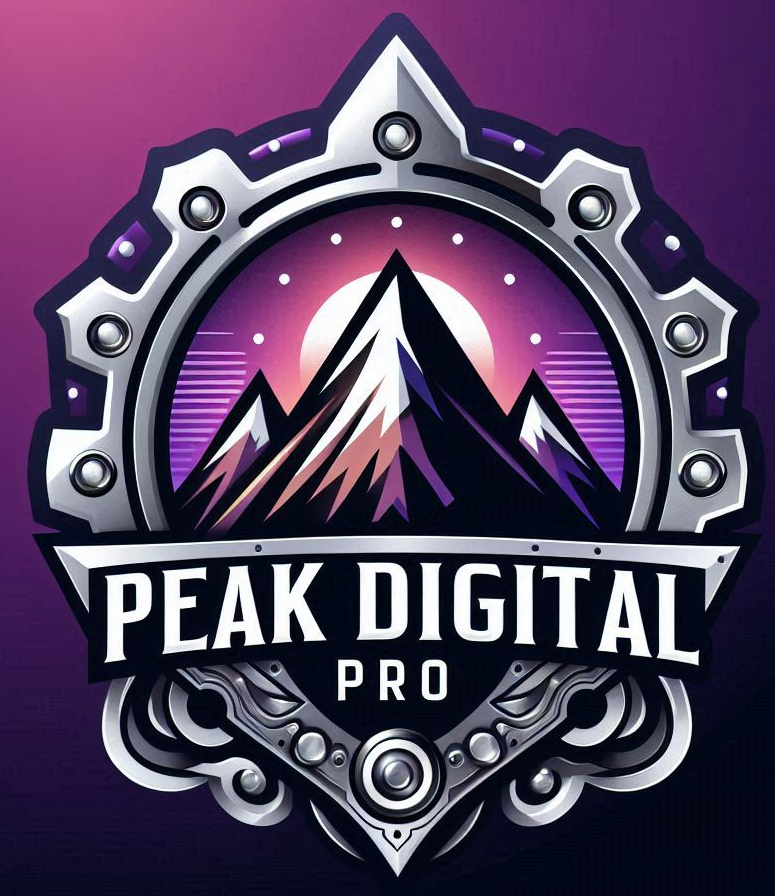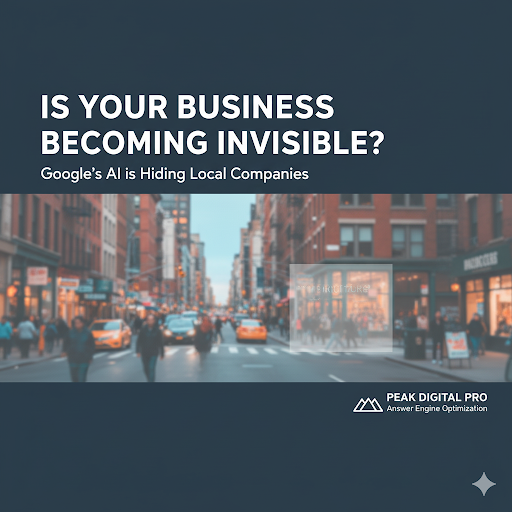The Future of Digital Marketing in 2025: What US and Colorado Businesses Need to Know
Digital marketing is moving faster than ever and businesses across the US and Colorado are scrambling to keep up. AI is now powering super personalized campaigns and immersive tech like AR and VR is changing how brands connect. But the real shock is this. Companies that invest in ongoing digital skills training are 3.5 times more likely to see significant growth in competitive markets. Turns out, the leaders in 2025 are not just the ones embracing flashy tech. They are the ones who keep learning and adapting every step of the way.
Table of Contents
Quick Summary
| Takeaway | Explanation |
|---|---|
| Embrace AI for Personalization | Use AI to tailor marketing efforts specifically to individual customer preferences and behaviors for enhanced engagement. |
| Adopt Immersive Technologies | Incorporate AR and VR to create interactive, memorable marketing experiences that attract and retain customer attention. |
| Prioritize Data Privacy | Implement transparent data practices to build consumer trust while utilizing analytics for effective marketing strategies. |
| Develop Localized Approaches | Tailor digital marketing to local markets by understanding unique community dynamics and using targeted content effectively. |
| Invest in Learning and Technology | Regularly update your skills and technology adoption to stay competitive and navigate the evolving digital landscape successfully. |
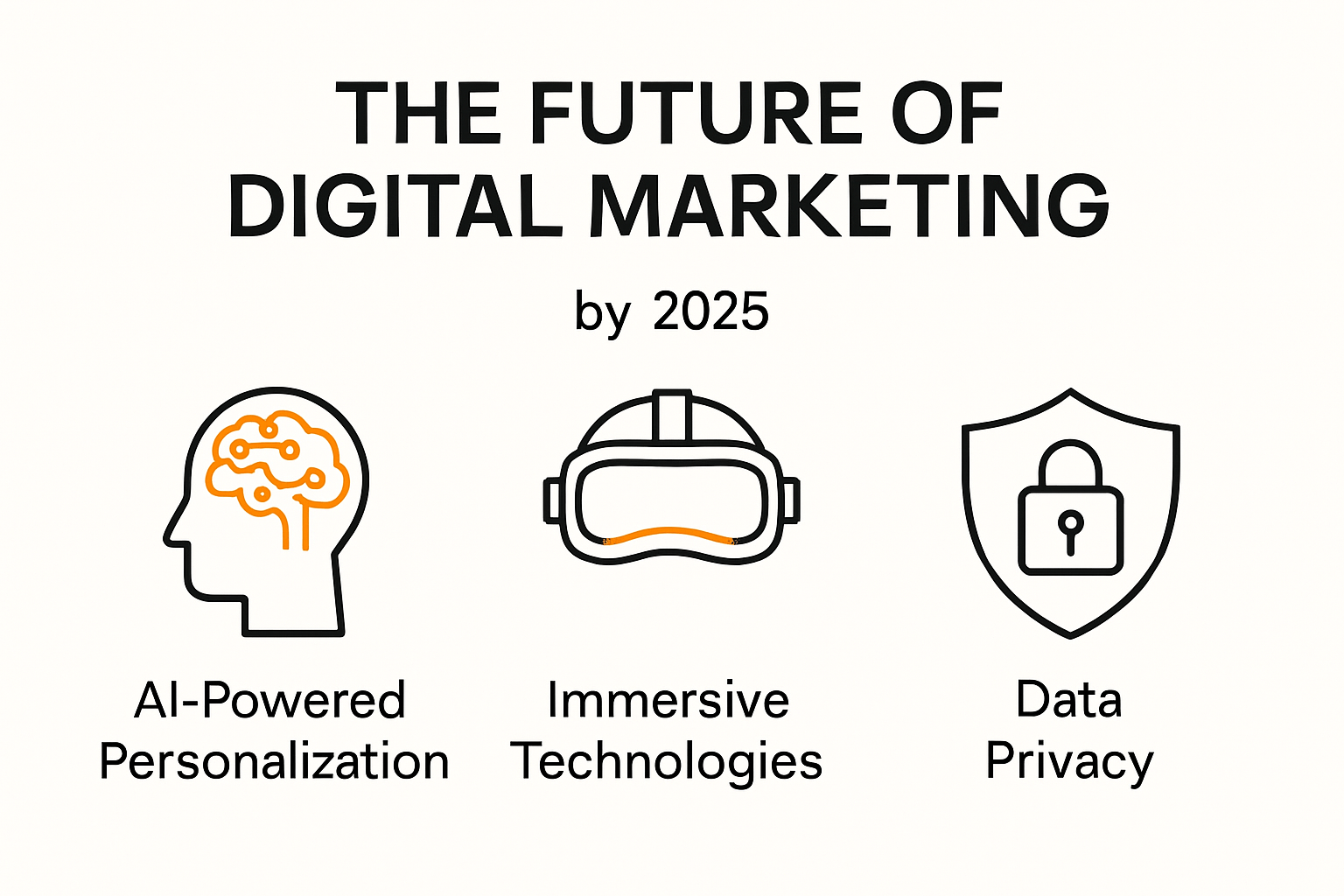
Key Trends Shaping Digital Marketing in 2025
The future of digital marketing is rapidly evolving, driven by technological innovations and shifting consumer behaviors. As businesses prepare for 2025, understanding emerging trends becomes crucial for maintaining competitive advantage and connecting effectively with target audiences.
AI Powered Personalization and Customer Experience
Artificial intelligence is revolutionizing digital marketing strategies by enabling unprecedented levels of personalization. Forbes research indicates that AI technologies will allow businesses to create hyper targeted marketing experiences that respond dynamically to individual customer preferences.
Companies can now leverage machine learning algorithms to analyze vast amounts of consumer data, predicting behavior patterns and creating personalized content recommendations. This approach goes beyond traditional demographic segmentation, offering truly individualized marketing interactions that feel intuitive and relevant to each user.
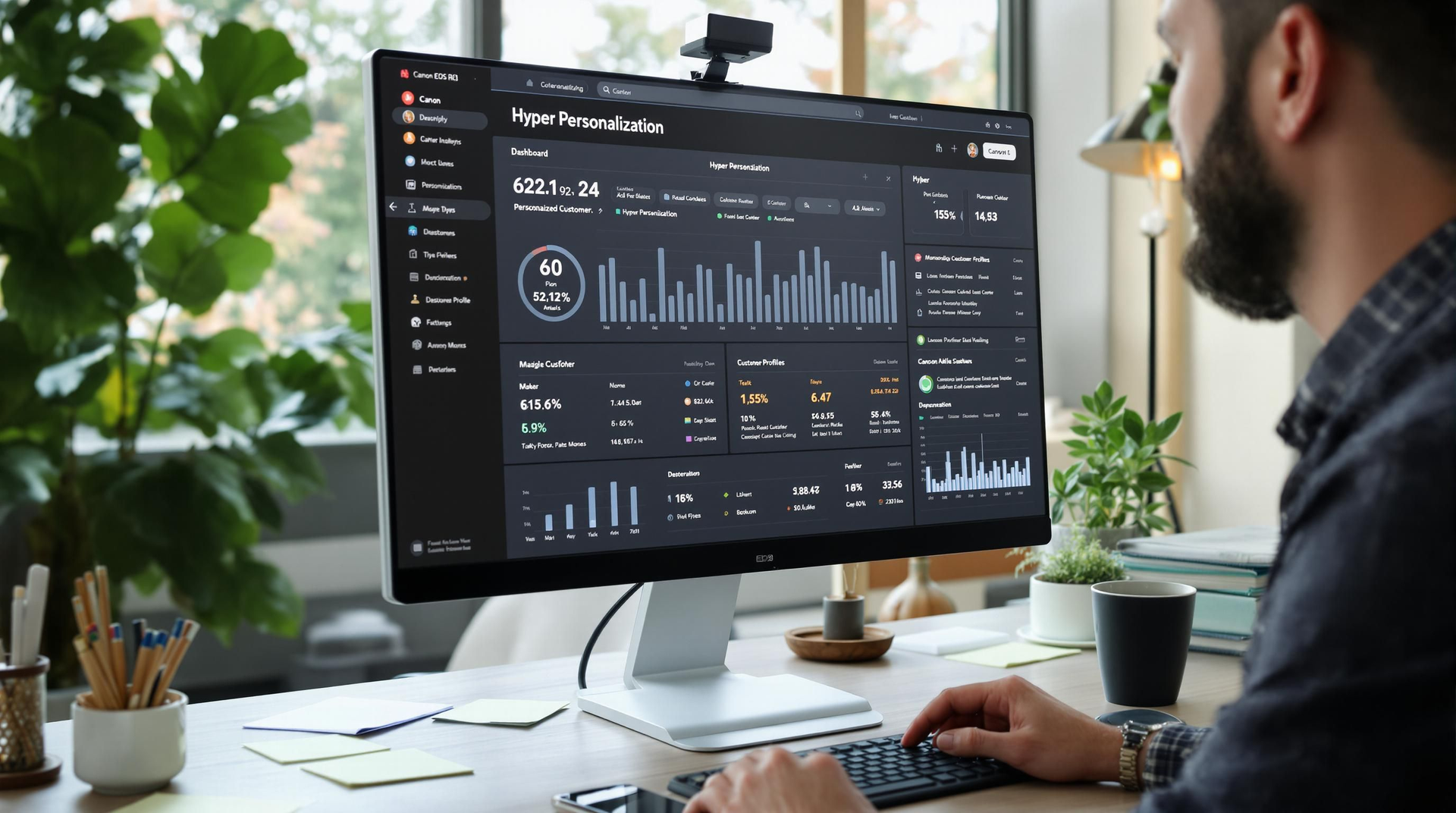
Immersive Marketing Technologies
Augmented reality and virtual reality are transforming how brands engage with consumers. Forbes Business Council highlights that immersive technologies will become mainstream marketing tools, allowing businesses to create interactive experiences that transcend traditional advertising methods.
These technologies enable consumers to virtually test products, explore services, and interact with brands in three dimensional spaces. From virtual clothing try ons to immersive product demonstrations, AR and VR are creating more engaging and memorable marketing interactions that drive deeper consumer connections.
Privacy Driven Marketing Analytics
With increasing concerns about data privacy, marketing strategies in 2025 will prioritize transparent and ethical data collection. Google’s research suggests a resurgence of marketing mix models that provide actionable insights while respecting user privacy.
Businesses will need to develop sophisticated approaches that balance personalization with consumer privacy protection. This means implementing robust consent mechanisms, using anonymized data aggregation techniques, and being transparent about data usage practices. The most successful digital marketing strategies will demonstrate a genuine commitment to protecting user information while still delivering value.
These emerging trends underscore a fundamental shift in digital marketing. Success will depend on leveraging advanced technologies, maintaining ethical data practices, and creating genuinely personalized consumer experiences that build trust and engagement.
How Artificial Intelligence Is Transforming Business
Artificial intelligence is fundamentally reshaping how businesses operate, innovate, and compete in the digital era. As technologies advance at unprecedented rates, companies across industries are discovering transformative opportunities to enhance efficiency, personalize customer experiences, and drive strategic decision making.
AI Driven Operational Efficiency
Businesses are leveraging AI to streamline complex operational processes and reduce manual workloads. McKinsey research reveals that generative AI technologies are enabling enterprises to dramatically accelerate content creation, automate repetitive tasks, and significantly reduce operational costs.
Machine learning algorithms can now analyze massive datasets in seconds, identifying patterns and insights that would take human analysts weeks or months to uncover. This capability allows businesses to make faster, more informed decisions across multiple domains including supply chain management, resource allocation, and strategic planning.
Personalized Customer Experience at Scale
AI is revolutionizing how businesses interact with customers by enabling hyper personalized experiences. Advanced algorithms can now analyze individual customer behaviors, preferences, and historical interactions to create tailored recommendations and engagement strategies.
Companies can now predict customer needs before they arise, design individualized marketing campaigns, and provide real time support through intelligent chatbots and virtual assistants. These AI powered solutions not only improve customer satisfaction but also increase conversion rates and customer loyalty by delivering precisely what each individual customer wants.
Strategic Decision Making and Predictive Analytics
Perhaps the most significant transformation AI brings is in strategic decision making. By processing vast amounts of complex data, AI systems can generate predictive models that help businesses anticipate market trends, identify potential risks, and uncover new growth opportunities.
Predictive analytics powered by AI enable businesses to move beyond reactive strategies to proactive approaches. Companies can now simulate various scenarios, understand potential outcomes, and make data driven decisions with unprecedented accuracy. This approach reduces uncertainty and allows organizations to allocate resources more effectively.
The integration of artificial intelligence represents more than just a technological upgrade. It signals a fundamental shift in how businesses understand and interact with data, customers, and their own internal processes. Companies that successfully adopt and adapt AI technologies will gain significant competitive advantages in an increasingly digital and dynamic business environment.
To better understand how artificial intelligence is transforming core business areas, the table below summarizes the key impacts and benefits across operational efficiency, customer experience, and strategic decision making.
| Area of Transformation | Description | Key Benefits |
|---|---|---|
| AI Driven Operational Efficiency | Uses AI to automate tasks, analyze massive datasets, and streamline operations. | Reduced costs, faster decisions, improved productivity |
| Personalized Customer Experience | Leverages AI to tailor interactions, predict needs, and deliver individualized marketing and support. | Higher satisfaction, increased loyalty, better conversion rates |
| Strategic Decision Making & Predictive Analytics | Applies AI to forecast trends, assess risks, and guide proactive business strategies. | Greater accuracy, mitigated risks, new market opportunities |
Building Local and National Marketing Strategies
Marketing strategies in 2025 demand a sophisticated approach that balances local precision with national scalability. Businesses must develop adaptive strategies that leverage advanced technologies while maintaining authentic connections with diverse audiences.
Localized Digital Presence
Successful marketing requires a nuanced understanding of local market dynamics. Forbes Agency Council highlights the critical importance of creating hyperlocal digital experiences that resonate with specific community needs and preferences.
Local businesses must optimize their online presence through targeted content, geographically specific SEO strategies, and platforms that understand regional consumer behaviors. This means developing marketing materials that speak directly to local audiences while maintaining a consistent brand voice that can scale nationally.
Conversational Search and Content Strategy
TechRadar Pro reveals that large language models are transforming how consumers discover and interact with content. Businesses must adapt their marketing strategies to align with conversational search patterns and AI driven content discovery.
This shift requires creating content that answers specific user questions, uses natural language, and provides comprehensive information. Brands need to develop strategies that anticipate user intent, whether the search originates from a local mobile device or a national desktop query. The goal is to create content that feels both authoritative and conversationally authentic.
Integrated Multichannel Marketing
Modern marketing strategies must seamlessly integrate multiple channels to create cohesive brand experiences. This means developing approaches that work equally well for a local coffee shop in Colorado Springs and a national retail brand.
Successful multichannel strategies involve synchronized messaging across digital platforms, consistent brand storytelling, and adaptive content that can be easily customized for different audience segments. Businesses must leverage data analytics to understand how consumers interact across various touchpoints, from social media and search engines to local review platforms and national advertising networks.
The future of marketing is not about choosing between local and national approaches but creating flexible strategies that can dynamically adjust to different contexts. Businesses that master this nuanced approach will build stronger connections with their audiences, driving engagement and growth in an increasingly complex digital marketplace.
The following table compares the focus areas and tactics for building effective local versus national digital marketing strategies, helping businesses identify which techniques to deploy in each context.
| Strategy Aspect | Local Approach | National Approach |
|---|---|---|
| Content | Community-focused, localized storytelling | Broad, consistent brand messaging |
| SEO | Regionally optimized keywords, local listings | Nationwide keyword targeting, general search ranking |
| Engagement Channels | Local social groups, regional review platforms | Major social networks, national advertising networks |
| Audience Targeting | Geographically segmented | Demographically or interest-based segmentation |
| Adaptability | Responsive to local events & trends | Scalable, standardized campaigns |
Practical Steps for Business Owners to Succeed
Navigating the complex digital marketing landscape requires strategic planning and proactive implementation. Business owners must adopt a comprehensive approach that combines technological understanding, continuous learning, and adaptable marketing strategies.
Invest in Continuous Learning and Technology
Successful businesses recognize that staying current with technological advancements is not optional but essential. Harvard Business Review emphasizes that companies investing in ongoing digital skills training and technology adoption are 3.5 times more likely to see significant growth in competitive markets.
This means dedicating resources to regular training programs, attending industry conferences, and creating a culture of technological curiosity. Business owners should encourage team members to explore emerging technologies, participate in online learning platforms, and develop skills in areas like AI integration, data analytics, and digital marketing tools.
Build a Robust Digital Infrastructure
Google’s Small Business Research reveals that businesses with comprehensive digital ecosystems are 70% more likely to weather economic uncertainties and market disruptions. Building a robust digital infrastructure involves more than just having a website or social media presence.
Key components include developing a responsive and mobile friendly digital platform, implementing secure data management systems, integrating customer relationship management tools, and creating seamless communication channels. Business owners should prioritize investments in technologies that enhance operational efficiency, customer experience, and data driven decision making.
Develop a Flexible and Adaptive Marketing Strategy
The most successful businesses in 2025 will be those that can quickly pivot and respond to changing market dynamics. This requires developing marketing strategies that are both data informed and creatively flexible. Business owners need to create frameworks that allow for rapid experimentation, continuous performance analysis, and strategic adjustments.
This approach involves setting clear key performance indicators, regularly analyzing marketing metrics, and being willing to quickly modify strategies based on real time insights. Businesses should develop a culture of agility where data drives decision making, but creativity and innovative thinking are equally valued.
The future of business success lies in understanding that digital transformation is not a destination but a continuous journey. Business owners who approach technological advancement with curiosity, strategic thinking, and a commitment to ongoing learning will be best positioned to thrive in an increasingly complex and competitive marketplace. The key is not just adopting new technologies but integrating them thoughtfully and strategically into every aspect of business operations.
Frequently Asked Questions
What are the key trends shaping digital marketing in 2025?
Key trends include AI-powered personalization, immersive marketing technologies like AR and VR, and privacy-driven marketing analytics that prioritize data transparency.
How is AI transforming customer experience in digital marketing?
AI enables businesses to create hyper-personalized experiences by analyzing customer data and predicting individual preferences, leading to tailored marketing strategies and improved customer satisfaction.
Why is continuous learning important for businesses in digital marketing?
Investing in continuous learning keeps businesses competitive; companies that prioritize ongoing digital skills training are 3.5 times more likely to achieve significant growth in competitive markets.
How can businesses create effective local marketing strategies?
Businesses can build effective local marketing strategies by optimizing content for local audiences, employing regionally specific SEO strategies, and engaging with community-focused platforms to resonate with local consumers.
Ready to Become a 2025 Digital Marketing Leader in Colorado?
Is your business struggling to keep up with rapidly changing online marketing trends? The article highlights how AI-driven personalization, immersive technology, and privacy-focused analytics are shaping the future. Many businesses feel overwhelmed by new tools and the constant need to level up their skills. If you want your company to not just survive but truly thrive in 2025, the answer is a digital strategy built on innovation, adaptability, and continuous learning.
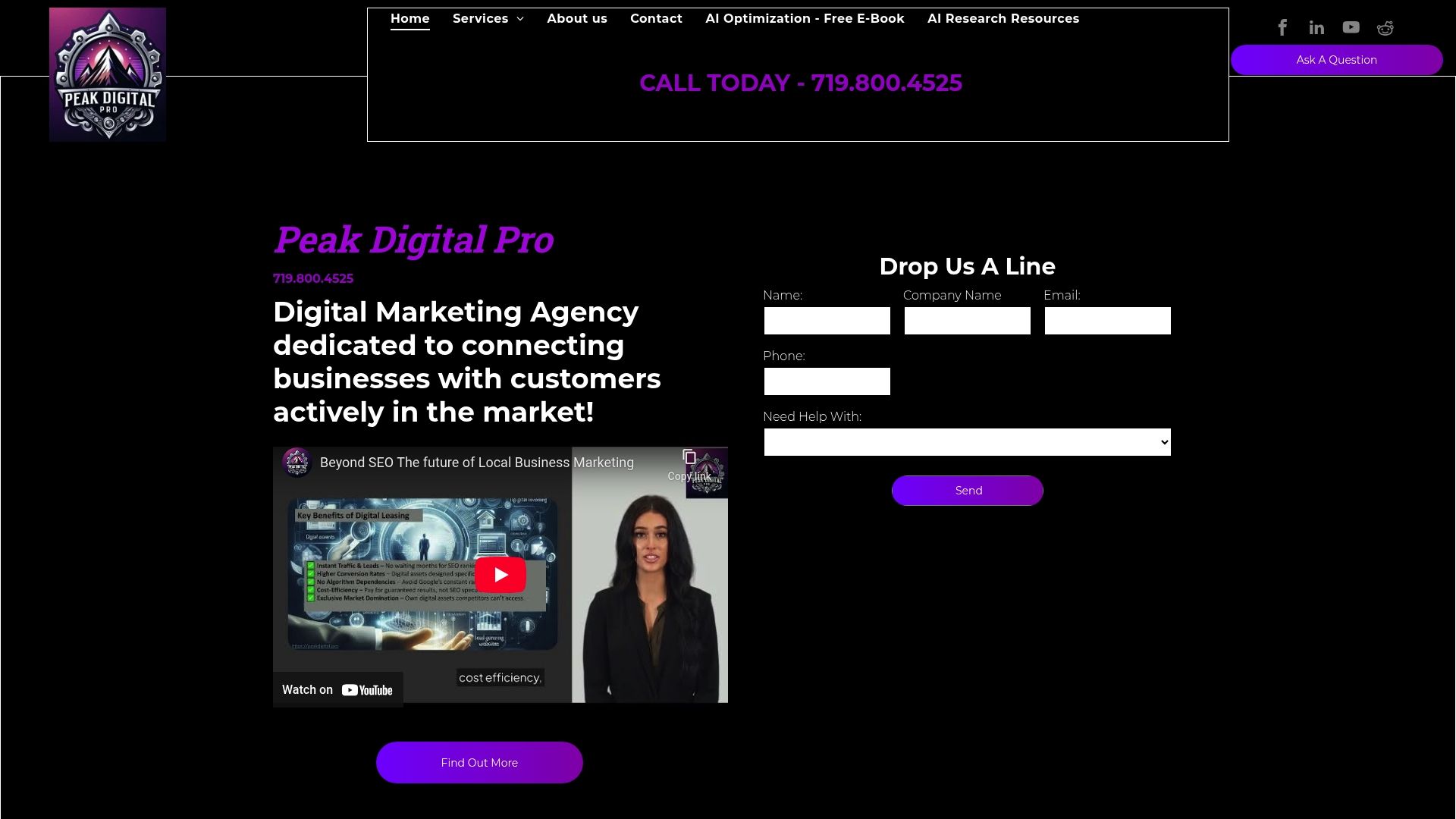
Join the Colorado businesses that trust Peak Digital Pro to transform challenges into opportunities. Our expert team specializes in advanced SEO, smart web development, and AI-powered marketing tailored to your goals. Take control of your digital future. Visit Peak Digital Pro’s homepage to discover proven solutions that drive growth and secure your competitive edge today.
